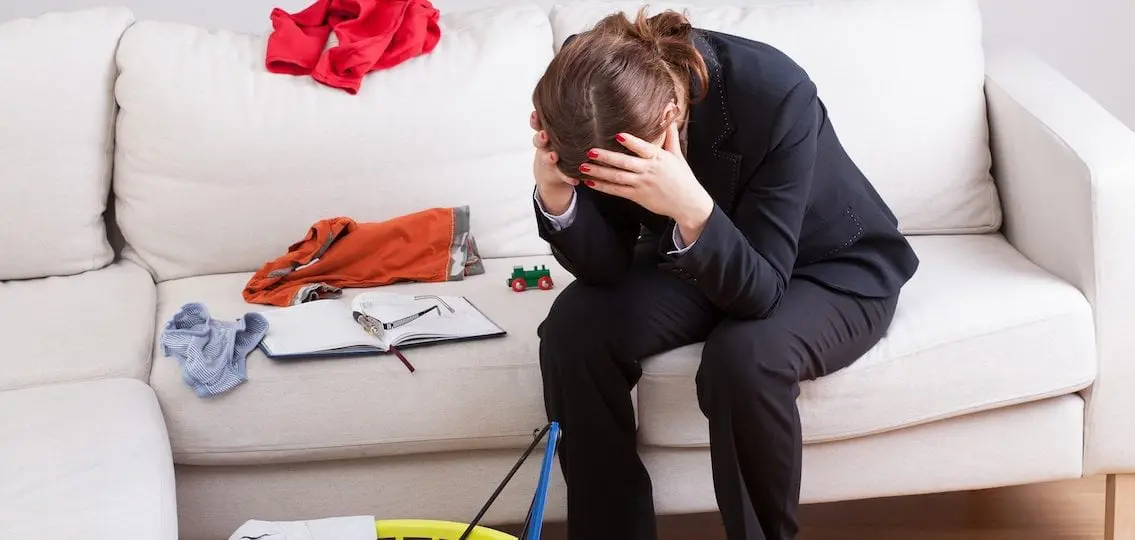About three months ago, my daughter turned 13.
And there she was, a teenager.

Of course, her behavior didn’t change overnight, but just the same, the day was a momentous one for my wife and me. She is our first child and we have had the requisite Wow, we have a teenager feeling more than a few times since our daughter’s birthday.
We face the same challenges other parents of teens face. She’s an incredible child, very loving, a great student, but as is typical of this age, she’s finding her own ground. And this definitely means a few more arguments, some talking back, occasional mean comments to her siblings, and her frickin’ room that we firmly believe she is actually incapable of effectively cleaning.
And yet…
My biggest challenge as her father? It’s doing the work on myself to be, as often as possible, the father I know I am deep down.
I want to make sure I don’t get lost in the craziness of this new, uncharted time in our lives—parenting a teenager. Also, I want to make sure I don’t let my own health or happiness go. I want to work even harder to be both the father I believe I can be and the father I believe my daughter needs me to be. Fact is, all the parenting techniques and books mean very little if I’m too tired, checked-out, and stressed to implement them consistently and long-term. That’s a part of effective parenting.
Staying Grounded: Self Care For Parents
So here are my favorite tips to help parents stay as grounded and calm as possible. Through all the stages of their children’s lives, including—and perhaps, especially—the teen years.
1. Discover the parent you want to be.
Take just a few minutes and ask yourself what your version of an ideal parent looks like. Would he/she be stressed, over-reactive, angry, a pushover, and irritable? Or calm, non-reactive, happy, confident, consistent, and strong? Write down your answer.
The most important thing about this tip is the knowledge of your ideal. Why? Because I strongly believe it is what defines you as a parent. It’s how you want to be. The stress of living in today’s world means it’s often hard to be this person, but…you can’t work toward being the best parent you can be unless you know who that is.
2. Don’t apologize for taking care of yourself first.
You know the cliché of the adult putting on their oxygen mask first before putting on the child’s? Well, some clichés are just true, and this is no exception. If we are unhealthy and unhappy, how can we expect to care for our teen in the best way possible? Answer? We can’t.
No more putting your own life on the back burner. It’s not only okay, but preferable–for the good of your entire family–to bring more joy, passion, and energy into your life.
3. Think in moments.
We parents cannot expect to be handed big chunks of time to recover from a stressful day or week. So instead focus on moments throughout your day (no matter how busy you are) to re-ground and reconnect. Grab moments throughout the day for short walks, deep breaths, or a snack of some carrots or celery once in a while. These moments of self-care matter. They really do.
If we don’t exercise and let ourselves go because we can’t find the 45 minutes for a spin class, this affects who we are with our children (and spouses to boot). But if we grab even a few minutes to move our bodies each day, we win. Period.
4. Focus (almost) entirely on the example you set.
This tip is a tough pill to swallow for many parents but above all else we need to be aware of the example we are setting for our teens. Does your teen see an unhappy, regretful, resentful parent or a parent who is vibrant, happy, alive, and passionate? Does your teen see a parent who fakes some odd concept of perfection, or one who admits mistakes and works hard to remedy them?

In my practice, I argue that it is the example we set that influences and teaches others far more than anything we say. As a parent, this means “do as I say AND as I do.”




